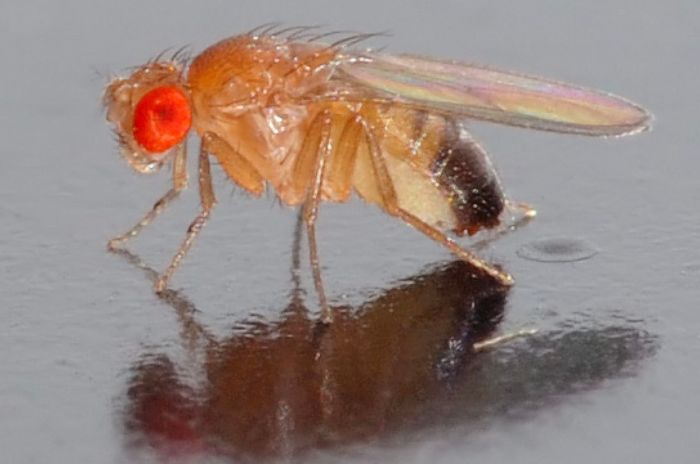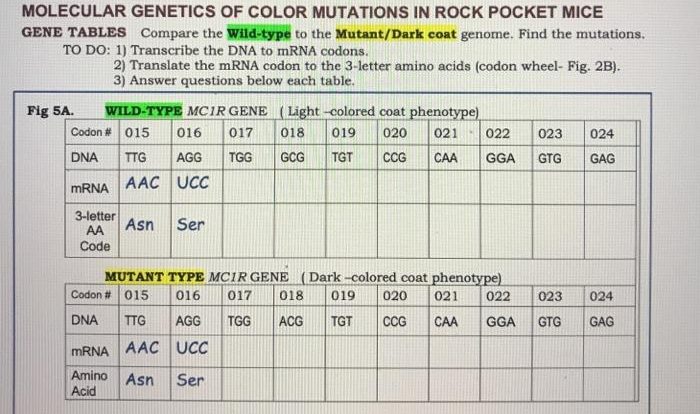Genetics of drosophila lab answers – Drosophila Genetics Lab Answers: Unlocking the Secrets of Life. This captivating exploration delves into the fascinating world of Drosophila genetics, showcasing its pivotal role in advancing our understanding of biology and its potential to revolutionize medicine and biotechnology.
From the fundamental principles of Mendelian inheritance to cutting-edge genetic engineering techniques, this comprehensive guide unravels the intricacies of Drosophila genetics, empowering students and researchers alike to unlock the secrets of life.
Introduction

Drosophila genetics has played a pivotal role in the advancement of our understanding of genetics and biology. Drosophila, commonly known as fruit flies, are small insects that have been used as a model organism for genetic studies for over a century.
Drosophila offers several advantages as a model organism: it has a short life cycle, is easy to maintain in the laboratory, and has a relatively simple genetic makeup. Moreover, its genetic characteristics are highly conserved among other species, including humans, making it an ideal system for studying fundamental genetic principles and their implications for human health and disease.
Genetic Tools and Techniques
Drosophila genetics has been instrumental in the development of various genetic tools and techniques that have revolutionized the field of genetics. These tools include:
- Mutagenesis: The process of inducing genetic mutations in Drosophila has allowed researchers to study the effects of specific gene alterations on development, behavior, and other traits.
- Genetic Mapping: Drosophila has been used to create detailed genetic maps that link specific genes to physical locations on the chromosomes. This has enabled researchers to identify the genes responsible for specific traits and to study their interactions.
- Transgenesis: The ability to introduce foreign genes into Drosophila has allowed researchers to study the function of specific genes in a controlled environment. This technique has been used to investigate the effects of gene overexpression, gene knockdown, and gene replacement.
Major Genetic Discoveries
Drosophila genetics has led to several major genetic discoveries that have shaped our understanding of biology and human health:
- Identification of Developmental Genes: Drosophila studies have identified key genes involved in embryonic development, such as the Hox genes, which control the formation of body segments.
- Behavioral Genetics: Drosophila has been used to study the genetic basis of behavior, including learning and memory, aggression, and courtship rituals.
- Disease Models: Drosophila models have been developed for various human diseases, such as cancer, neurodegenerative disorders, and metabolic diseases. These models have provided insights into the genetic mechanisms underlying these diseases and have aided in the development of potential therapies.
Applications in Biotechnology and Medicine
Drosophila genetics is increasingly being used in biotechnology and medicine:
- Drug Discovery: Drosophila models are used to screen for potential drug targets and to study the efficacy and toxicity of new drugs.
- Gene Therapy: Drosophila is being used to develop gene therapy approaches for human diseases, such as sickle cell anemia and muscular dystrophy.
- Biotechnology: Drosophila is used in the production of recombinant proteins, such as antibodies and enzymes, for use in biotechnology and pharmaceutical applications.
Ethical Considerations, Genetics of drosophila lab answers
The use of Drosophila in genetic research raises ethical considerations:
- Animal Welfare: Researchers have a responsibility to minimize the suffering of Drosophila used in research and to ensure their humane treatment.
- Genetically Modified Organisms: The use of genetically modified Drosophila raises concerns about the potential risks to the environment and the ethical implications of creating new organisms.
Researchers address these ethical concerns by adhering to strict guidelines and regulations, such as those set by the Institutional Animal Care and Use Committees (IACUCs) and the National Institutes of Health (NIH).
FAQ Overview: Genetics Of Drosophila Lab Answers
What is the significance of Drosophila in genetic research?
Drosophila’s short generation time, ease of breeding, and well-defined genetics make it an ideal model organism for studying the fundamental principles of inheritance and genetic mechanisms.
How have genetic discoveries in Drosophila contributed to our understanding of human genetics?
Many genes and genetic pathways discovered in Drosophila have human homologues, providing insights into the genetic basis of human diseases and developmental disorders.
What are the ethical considerations in using Drosophila in genetic research?
Researchers must carefully consider the potential for animal suffering and the responsible use of genetically modified organisms, ensuring that the benefits of research outweigh any potential risks.
